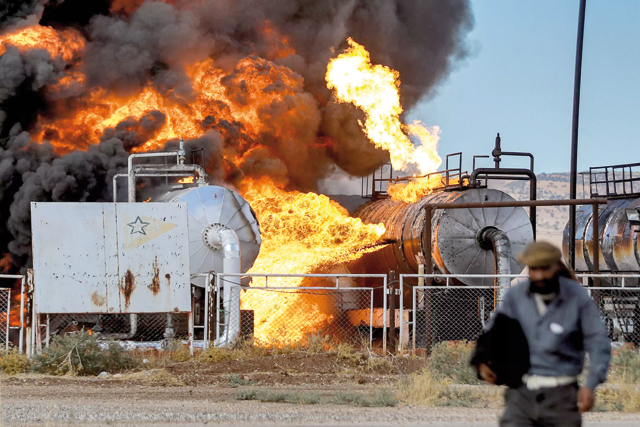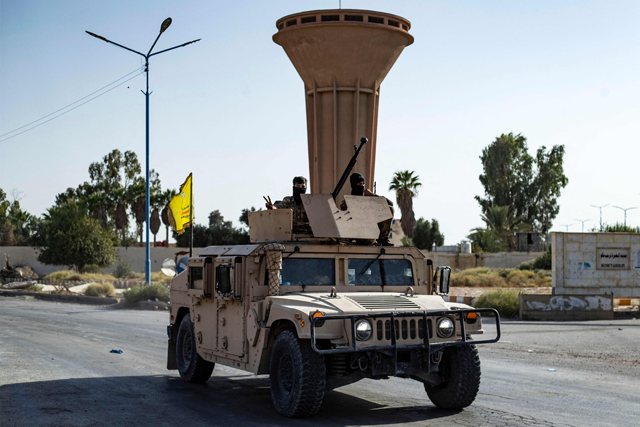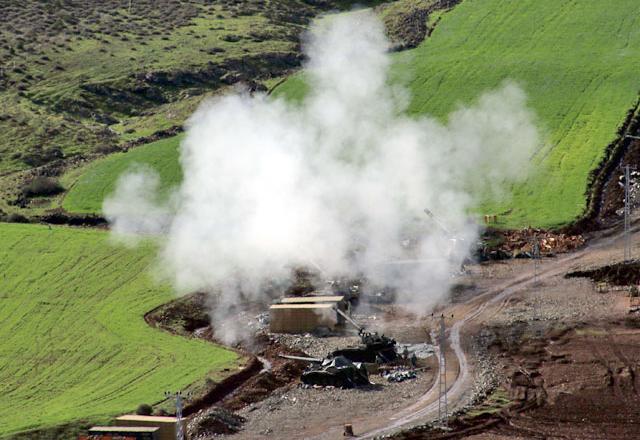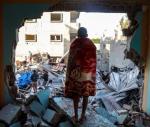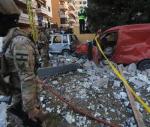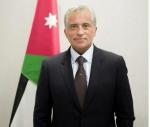You are here
Turkey destroying NE Syria oil, power facilities — Kurds
By AFP - Oct 12,2023 - Last updated at Oct 12,2023
HASAKEH — Turkish bombardment has damaged more than half of Kurdish-held northeast Syria's power and oil infrastructure, dealing a blow to its energy-dependent economy, the Kurds' top commander said.
Mazloum Abdi, who heads the Kurdish-led, US-backed Syrian Democratic Forces (SDF), also criticised Washington for failing to do more to prevent the strikes, during an interview with AFP in the northern city of Hasakeh.
On October 5, Turkey launched a bombing campaign in Syria's northeast after it said militants who were behind an attack in Ankara came from and were trained in Syria.
The semi-autonomous Kurdish administration has denied the claim, and says at least 44 people, including security personnel and civilians, have been killed in the attacks.
"More than half of oil and electricity facilities were damaged" as Turkey struck dozens of sites including power plants and gas infrastructure, Abdi said.
His forces spearheaded the battle to dislodge Daesh fighters from their last scraps of Syrian territory in 2019.
The assault has left residents without power since Thursday, in a region already struggling to provide just 10 hours of electricity per day.
"The Unites States' position has been weak" in the face of the attacks, Abdi said.
"American forces limited their action to protecting their positions... but did nothing to stop" the onslaught, he said.
'Directly targeted'
Ankara views the Kurdish People's Protection Units (YPG) that dominate the SDF as an offshoot of the banned Kurdistan Workers' Party (PKK), which has been waging an insurgency against Turkey for decades.
President Recep Tayyip Erdogan vowed on Wednesday to intensify strikes against Kurdish fighters in Syria and Iraq.
A branch of the PKK — listed as a terror group by Ankara and its Western allies — claimed responsibility for the Ankara bombing, the first to hit the Turkish capital since 2016.
Abdi said Turkey "directly targeted infrastructure, services and resources" used by Kurdish authorities in order to cut off sources of income and "prevent the SDF from carrying on".
"They couldn't target the SDF directly, so funding sources were targeted," he said in Tuesday evening's interview.
Last Thursday, the United States shot down a Turkish drone deemed a threat to American forces in northeast Syria.
Hundreds of US personnel are stationed in the country’s north and northeast as part of an international coalition fighting Daesh extremists, alongside the SDF.
“Forces present in the region, be they Russia, American or the [international] coalition, must... keep these attacks from happening” and help rebuild damaged facilities, Abdi demanded.
‘Lukewarm’
Since 2016, Turkey has carried out successive ground operations to expel Kurdish forces from Syrian border areas, and it has maintained a military presence and proxies in parts of northern Syria.
Ankara has long condemned its NATO ally Washington’s support for the SDF.
In March 2020, Turkey and the Syrian government’s ally Russia agreed to establish a security corridor in the region, with joint Turkish-Russian patrols along designated Kurdish-held areas.
The SDF is the largest armed force in Syria after the country’s army, and controls roughly a quarter of Syrian territory and most of its oil resources, largely located in the Arab-majority Deir Ezzor province.
In recent years, Kurdish authorities have held several unsuccessful rounds of talks with President Bashar Assad’s government, which rejects their self-rule and accuses them of “separatism”.
The two sides never cut ties but Abdi described their latest meetings as “lukewarm”.
In September, days of clashes between Arab fighters, some of them formerly part of the SDF, and Kurdish-led forces in Deir Ezzor province left dozens dead.
Although security in the area has since improved, Deir Ezzor still suffers from a multitude of problems “that have yet to be resolved”, Abdi said, citing administrative and service issues.
The SDF has denied any tensions with Arab tribes in the area, and has instead accused the Syrian government of supporting local fighters and sending reinforcements.
Related Articles
QAMISHLI, Syria — A drone strike on Thursday on a Syrian military academy killed more than 60 people, a war monitor said, with state media b
BEIRUT — US-backed Kurdish-led forces in Syria declared the "end of military operations" in the country's east Wednesday after days of clash
BEIRUT — A Kurdish-led alliance in northern Syria said late on Saturday it had targeted military positions in Turkey, which is leading an of


